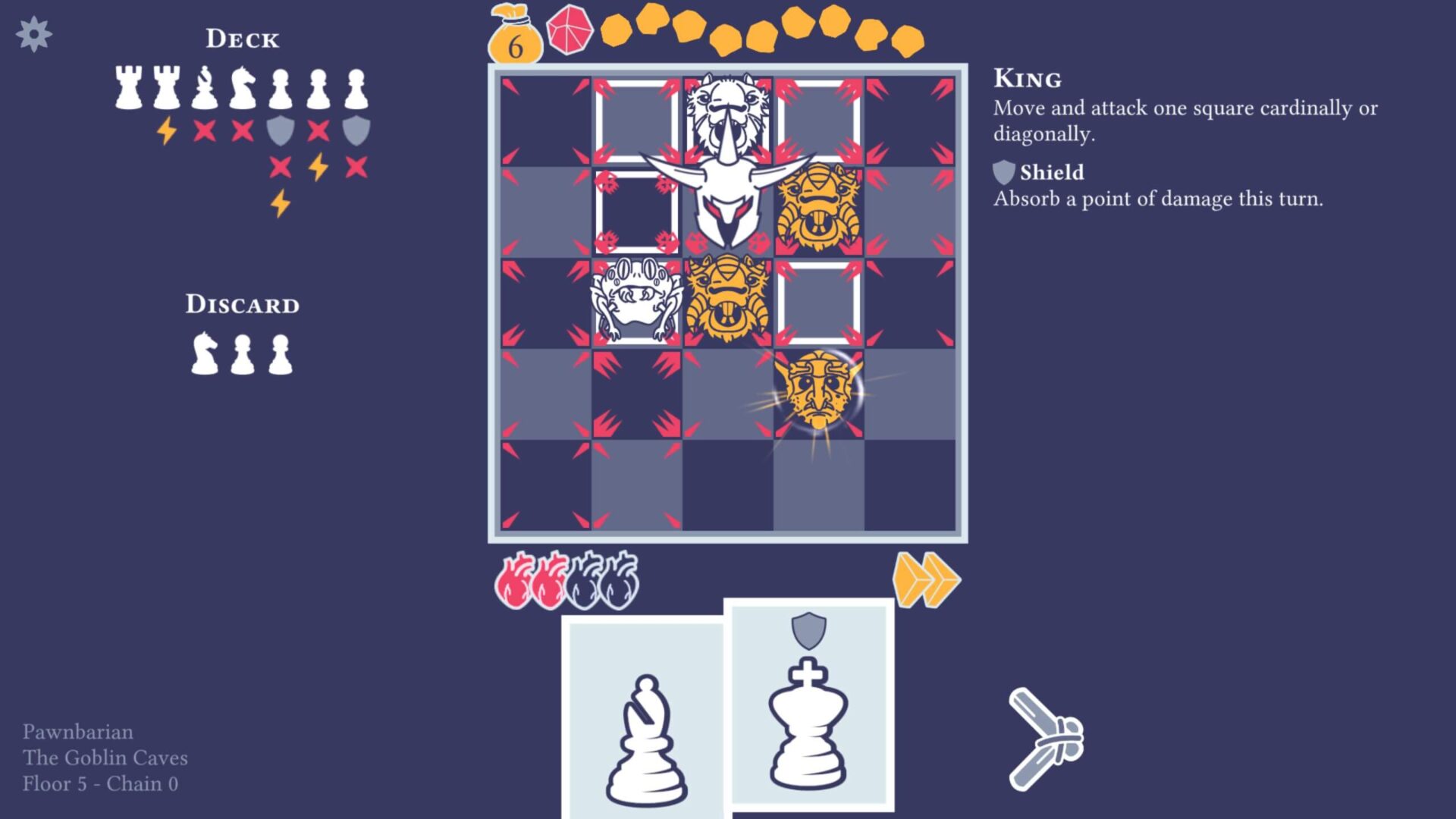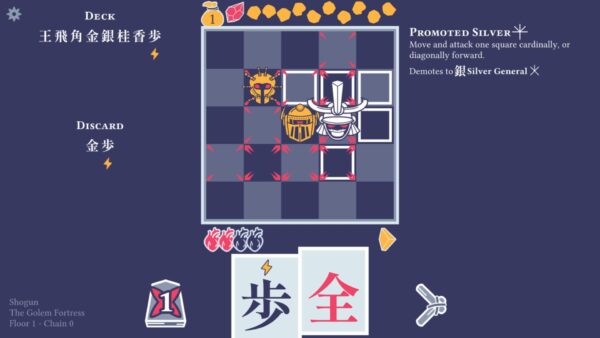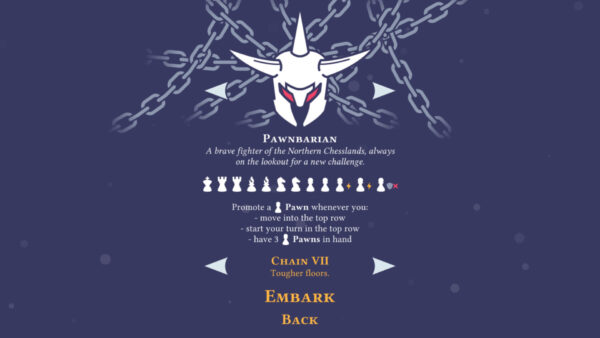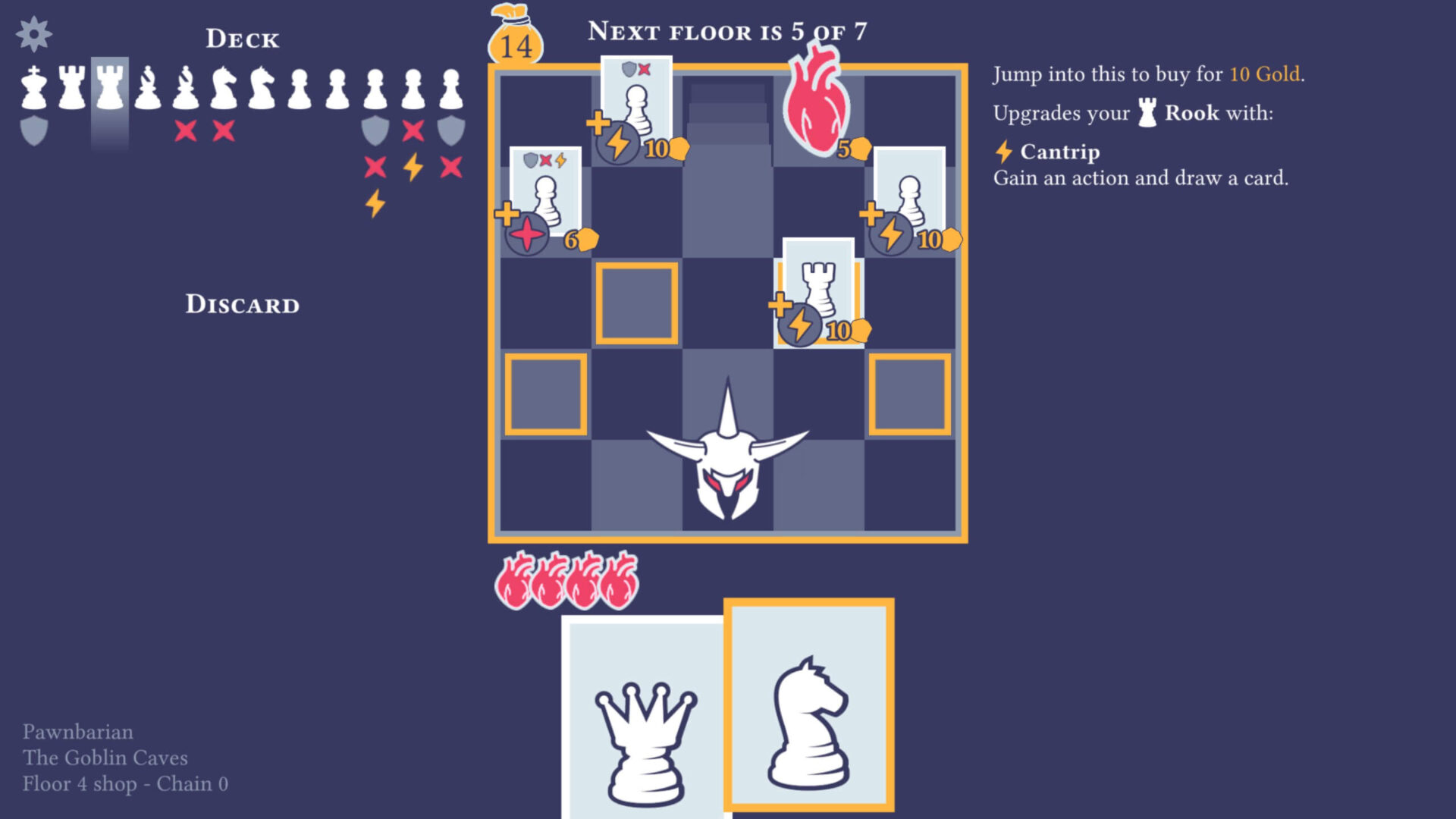Pawnbarian is a puzzle roguelike by j4nw that mixes elements of deck building, strategy, and the classic game of chess into a small yet deep and engaging game.
At a young age, I often enjoyed going to my school chess club and learning the ins and outs of the game. Not very well, but it was still fun, and Pawnbarian in its way manages to tap into that same childhood joy.
You don’t need to be a chess master to enjoy this game. You don’t need to know a lot about Chess at all — just the basics will be fine. The chess element of this genre mishmash comes from the pieces, as you’ll use the rules and restrictions of the pawn, knight, bishop, rook, and queen pieces to move and battle enemies across a 5×5 grid.
The deck-building elements come from how you get these pieces. With each turn, you draw new cards with chess pieces, and each turn you’ll use what you draw to navigate each floor and set of enemies. As for strategy, that’s down to how you use each piece. With each turn you’ll need to be cautious and thoughtful about how you use your cards and move across the stage, making sure to take down enemies quickly whilst being mindful of the limited rules at your disposal.
Together, they make an interesting mixture. I often found myself thinking multiple moves ahead, and it became very natural to plan and consider each move without feeling tedious, much like chess. What’s more, these elements all feel fair and the challenges presented are all clear, making the experience an easy one to grasp, with the difficulty coming from how you use your knowledge of chess and the game’s systems to overcome these evolving and varied puzzles. The puzzles and floors themselves feel well crafted, and puts the focus on your ability to adapt and learn how each enemy moves, and their behaviour, all whilst not feeling too random and makes it an experience that changes and differs with each move and attempt, constantly making it feel fresh and challenging.
There aren’t too many extra bells and whistles with Pawnbarian, but this works to the game’s advantage. Defeating enemies nets you some treasure to spend between floors, which you can use to heal or increase your health, or purchase additional cards to fill out your deck. Then there are the additional powers, which are small in number but offer some nice utility. Cards with these extra powers add some additional strategic choice and nuance to the combat puzzles, some dealing damage to nearby enemies, giving you a shield to protect your health, or even letting you draw an extra card and another action. To top it off you have multiple classes with different approaches and unique abilities, as well as enemies with their own abilities and extra quirks to contend with.
It’s simple on the surface, but the game shines in how its gameplay constantly changes. With each move the puzzle of combat changes, and your understanding of its systems and quirks, there’s no easy way out or simple singular strategy, it comes down to you and your skills, and it manages to balance that challenge and complexity brilliantly.
To do so much with so little is a testament to great design, and Pawnbarian demonstrates that with each piece of its gameplay. Each mechanic is carefully crafted and considered, and despite its small size and scope, this roguelike has heaps of depth and nuance that made my time with the game rewarding and enjoyable. Plus I realised I can still play chess.







Leave a comment